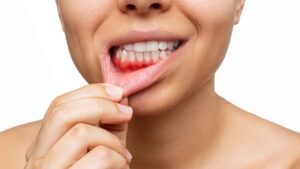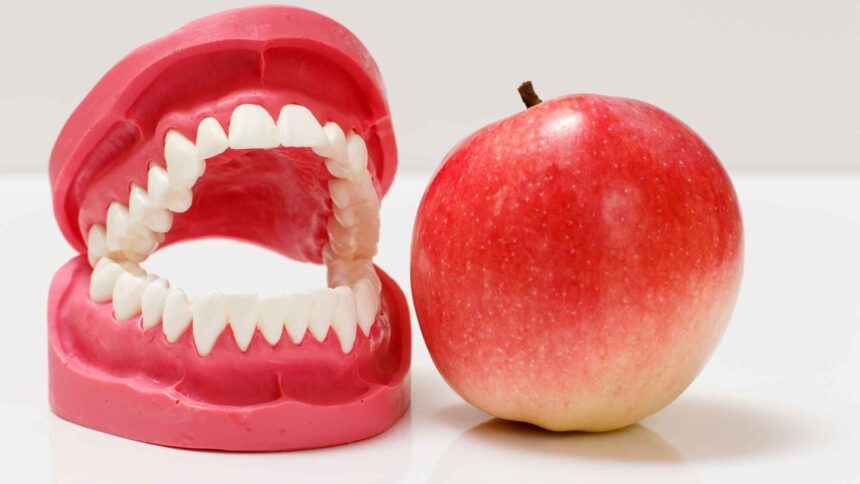Your teeth are much more than just tools for chewing, they play a vital role in your overall health and wellbeing. Understanding how your teeth work can help you take better care of them and make informed decisions about your oral health. At Krishees Dental, we believe that educating our patients is just as important as providing excellent dental care. In this comprehensive guide, we’ll walk you through the anatomy of your teeth, how they function, and why regular dental visits are crucial for maintaining a healthy smile.
1. The Anatomy of a Tooth
Before diving into the functions of your teeth, it’s important to understand their structure. Teeth are complex, multi-layered structures, and each part plays a unique role. Here’s a breakdown of the main components:
Enamel
The outermost layer of your tooth is called enamel. It is the hardest substance in the human body and acts as the tooth’s protector. Enamel shields your teeth from decay, wear, and tear. However, enamel can wear away over time due to poor oral hygiene, diet, or acidic foods. Once enamel is damaged, it doesn’t regenerate, which is why taking care of it is essential.
Dentin
Beneath the enamel lies dentin. This layer is softer and more sensitive than enamel. It provides structure to the tooth but can be prone to discomfort or sensitivity if exposed due to worn enamel or cavities.
Pulp
The pulp is the innermost part of the tooth. It consists of nerves, blood vessels, and connective tissue that nourish the tooth and help it grow. If the pulp becomes infected due to injury or deep cavities, it can cause severe pain and may require a root canal treatment.
Cementum
Cementum covers the root of the tooth, helping to anchor it securely in the jawbone. While not as strong as enamel, cementum plays an important role in stabilizing the tooth within your mouth.
Root
The root of the tooth is embedded in the jawbone. It holds the tooth firmly in place and contains the pulp. The roots are essential for the stability of your teeth, and they are protected by cementum.
Gums (Gingiva)
Although not technically part of the tooth itself, the gums surround and support your teeth. Healthy gums are crucial for keeping teeth in place and preventing infection. If the gums become infected or recede, they can lead to tooth loss.
2. How Your Teeth Function
Teeth are designed to perform several key functions. Let’s explore how each type of tooth contributes to your overall oral health and functionality:
Chewing and Breaking Down
The main function of your teeth is to chew and break down food into smaller pieces. This process is the first step in digestion. Your teeth help make food more manageable for your stomach to digest. Different types of teeth work together to achieve this:
Incisors: These sharp, flat teeth at the front of your mouth cut food into smaller pieces. They are the first teeth to make contact with food.
Canines: Located next to the incisors, canines have a pointed shape designed to tear food, especially meat and fibrous items.
Premolars and Molars: These larger, flatter teeth are located at the back of your mouth. They are perfect for grinding and crushing food into smaller particles, making it easier to swallow.
Aesthetic and Facial Support
Teeth also support the overall structure and aesthetics of your face. They help shape your lips and cheeks, contributing to your facial appearance. A healthy smile not only enhances your look but boosts your self-confidence.


3. The Interaction Between Teeth and Jawbone
Teeth don’t function independently, they rely on the jawbone for support. The roots of your teeth are embedded in the jawbone, held in place by surrounding tissues. This connection is vital for several reasons:
Stability: The jawbone provides stability, ensuring that your teeth stay firmly in place. When the jawbone weakens due to conditions like gum disease or osteoporosis, it can lead to tooth loss.
Stimulating Bone Growth: Chewing stimulates the jawbone, encouraging bone cell production and promoting healthy bone density. That’s why it’s important to maintain regular chewing and biting activities to preserve bone health.
4. Caring for Your Teeth: Tips from Krishees Dental
Now that we’ve explored how teeth work, let’s discuss how you can care for them. Regular dental visits at Krishees Dental will help you stay on top of your oral health, but here are a few things you can do at home to keep your teeth in great shape:
Brushing
Brush your teeth at least twice a day using fluoride toothpaste. This helps remove plaque and food particles, preventing cavities and gum disease. Use a soft-bristled toothbrush and brush for two minutes each time. Be sure to clean all surfaces of your teeth, including the front, back, and chewing surfaces.
Flossing
Floss daily to remove food particles and plaque between your teeth and along the gumline. Flossing helps clean areas that your toothbrush may miss, reducing your risk of cavities and gum disease.
Diet
Eat a balanced diet rich in vitamins and minerals. Avoid sugary foods and drinks, which can lead to cavities and enamel erosion. Drinking water throughout the day helps wash away food particles and keeps your mouth hydrated.
Regular Dental Checkups
Book regular checkups at Krishees Dental to keep your teeth healthy. Routine cleanings, exams, and early detection of any issues can help prevent problems from worsening. Our team of specialists is here to provide the care you need to keep your smile in top condition.
5. Common Dental Issues and How We Treat Them at Krishees Dental
Despite your best efforts, dental issues can arise. Here are some common problems and how Krishees Dental can help:
Cavities
Cavities occur when plaque and bacteria cause decay in the enamel. If left untreated, cavities can spread to the dentin and pulp, leading to pain and infection. We can restore your tooth with a filling or perform a root canal if necessary.
Gum Disease
Gum disease starts with gingivitis and can progress to periodontitis if not treated. Symptoms include swollen, bleeding gums and bad breath. At Krishees Dental, we offer deep cleanings and other treatments to help restore gum health and prevent tooth loss.
Tooth Sensitivity
Sensitive teeth can result from enamel loss, gum recession, or cavities. If you experience discomfort, our team can provide treatments such as fluoride applications or dental sealants to reduce sensitivity.
Cosmetic Concerns
If you’re unhappy with the appearance of your teeth, we provide a range of cosmetic treatments, including teeth whitening, veneers, and orthodontic options like braces or Invisalign to help you achieve the smile you desire.


6. When to Seek Professional Care
If you notice any pain, discomfort, or changes in your teeth, don’t hesitate to seek professional care. Krishees Dental provides emergency services for urgent issues like tooth pain, injury, or infection. Our experienced team is ready to address your concerns and help restore your smile quickly and effectively.
Conclusion:
Your teeth are complex structures that serve many essential functions, from chewing and speech to supporting your facial appearance. Understanding how they work can help you take better care of them and make informed decisions about your oral health. Regular dental visits at Krishees Dental are key to maintaining healthy teeth, but it’s also important to brush, floss, eat a balanced diet, and avoid habits that can harm your teeth. If you have any questions or need to book an appointment, contact us today. We’re here to help you keep your smile healthy and beautiful for years.


Leave a Reply